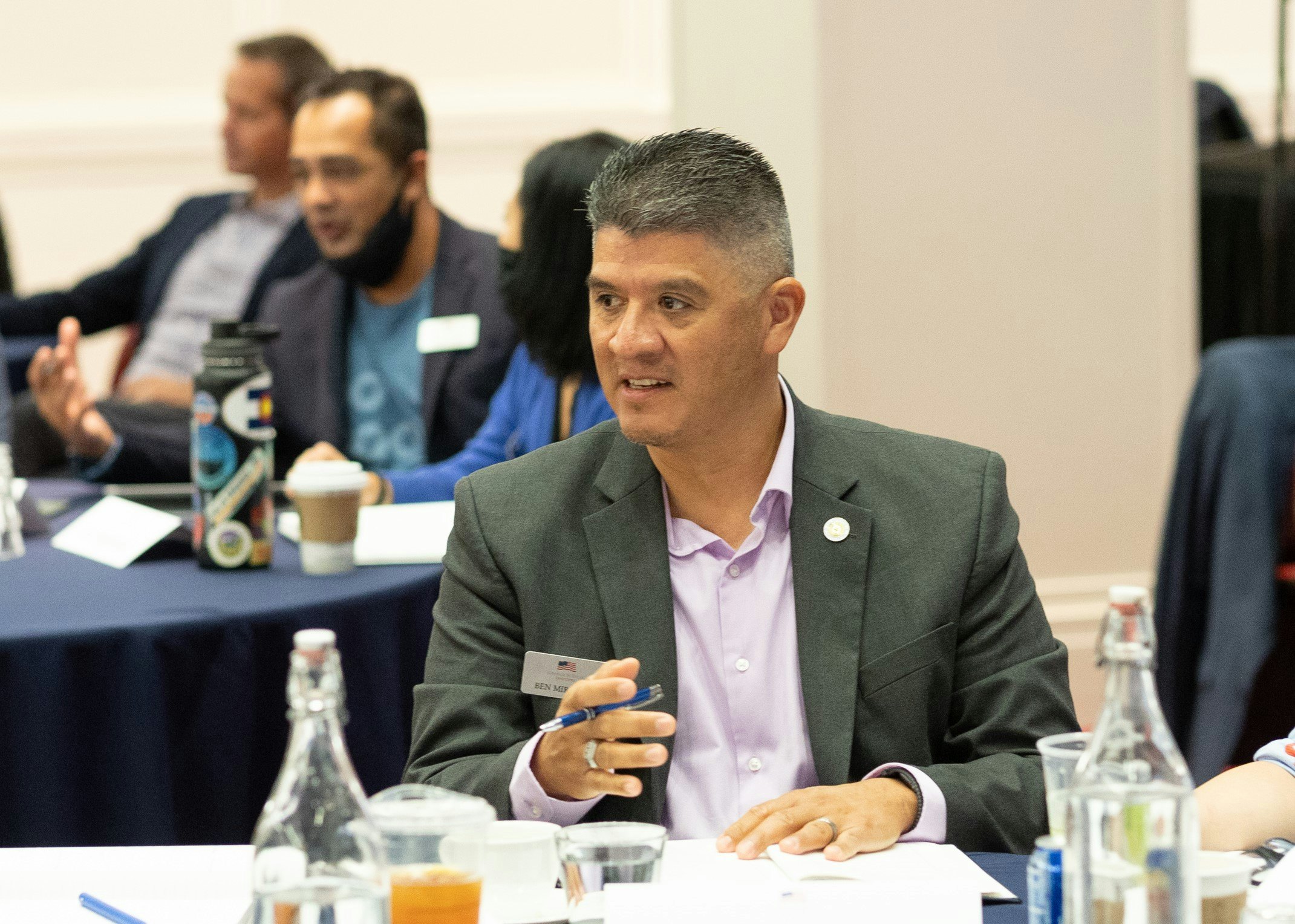This week, the Bush Center will host its 6th annual W100K, a 100-kilometer mountain bike ride for seriously wounded or injured post-9/11 veterans and military personnel. This event spotlights the effectiveness of sport in helping our service men and women recover from their visible and invisible wounds.
Today, we hear from Major General Mark Graham, U.S. Army (Retired), who serves as Senior Director of Rutgers University’s Behavioral Health Care National Call Center, about losing one son to a visible injury and another son to an invisible injury.
My wife Carol and I discovered the power of connection after the tragic deaths of both of our sons. Just eight months before our oldest son Jeffrey was killed in Iraq by an IED, we lost our younger son Kevin to suicide. We knew our son, Kevin was sad, we just didn’t know he could die from being too sad.
Our sons died fighting different battles.
On June 21, 2003 we lost our son Kevin to suicide. He was a senior ROTC cadet studying to be an Army doctor. He was a scholarship student battling depression and stopped taking his medication because he did not want the Army to know of his illness. When Kevin died we were stationed in Korea and blamed ourselves for not recognizing the serious warning signs that Kevin’s depression was a medical illness and not just a sad feeling.
In the midst of unspeakable grief we were overwhelmed by an outpouring of love and support. Countless people came from all over to help us shoulder our grief and give us courage to keep living. Our children had been our whole world so in order to survive we had to find a healthy way to channel our grief.
When we visit wounded service members we know that they could be our Jeffrey. Had he survived the IED attack he would likely be an amputee with severe burns and struggling with Post Traumatic Stress Disorder (PTSD) and Traumatic Brain Injury (TBI).
We have pledged to use Kevin’s death to raise awareness to the dangers of untreated depression, PTSD, TBI and other mental health issues. We are compelled to speak out for all the “Kevin’s” of the world who have no voice.
Our daughter, Melanie followed her dream to become a nurse and is now married to Joe Quinn, a West Point graduate and three tour Iraq and Afghanistan war veteran who lost his brother Jimmy on 9-11 in the World Trade Center. September 21, 2016 Joe and Melanie gave birth to their first child, Beckett Lee.
Rabbi Kushner in his book When Bad Things Happen to Good People tells of an experiment that was conducted at a university’s psychology department. He said they tested a number of volunteers to see how long they could keep their bare foot in a bucket of ice water. One thing that proved true, time after time was that if there was just one person in the room, the subject could keep their foot in the bucket of ice water twice as long. The mere presence of another caring person doubles the amount of pain a person can endure.
It’s when we slow down and really listen that we build bonds of trust that make the difference in the lives of people whose dreams have been shattered.
It has been said that depression is the slow bleeding of the soul. We can all be the tourniquet that stops the bleeding of these priceless souls.
I close as I always do, by using the words placed on a banner at the grave sites of our sons. This banner simply said, “Land of the Free…Because of the Brave!”
Vets4Warriors, 855-838-8255, provides 24/7 confidential peer support to our service members, veterans, their families and caregivers around the world.






























